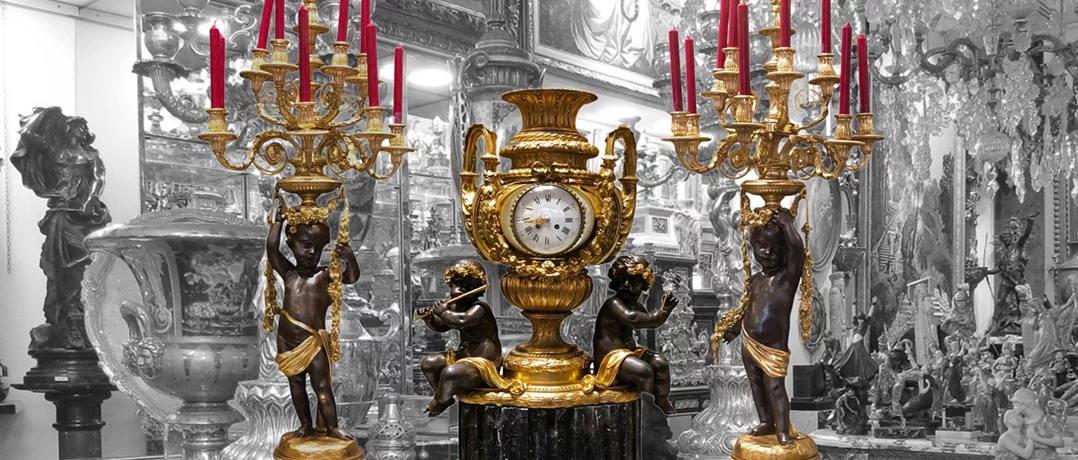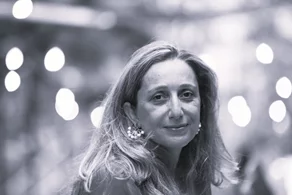Lebanon’s antiques market struggles amid economic crisis, but dedicated dealers and rare treasures are keeping its legacy alive.
Lebanon’s antique market struggles amid prolonged crisis
Lebanon’s antique market struggles amid prolonged crisis


After a revival following the end of Lebanon’s civil war in 1990 and into the early 2000s, the country’s antiques market is now running at a slow pace due to the six years’ financial crisis.
Yet, the market still holds rare and valuable pieces, and auctions are slowly making a comeback, even as many of the country's leading antique dealers remain hesitant.
An antiques market in crisis, yet still holding value
Johnny H. Chartouny, CEO of Art Auctions, that owns the largest collection of antiques in the Middle East and collaborates with major international brokers such as Sotheby’s and Christie’s, is clear about the challenges.
"With the banking crisis, many people ask me to organize auctions, but I refuse because people no longer have the means to buy,” Chartouny said.
They’ll only come to look at the lots. And those who want to sell will be offering family heirlooms because they need cash. The market is low now, and I don’t want a day to come, after the crisis is over and the market recovers, when they say, ‘We were taken advantage of by Johnny H. Chartouny.
The stance of one of the Middle East’s leading antique dealers, who organized Lebanon’s first post-war auctions, makes it clear that in the elite world of antiques, reputation is everything, built slowly over time. The profession is also driven by passion, a love of beauty, and a shared appreciation of an object’s value with the buyer.
Chartouny: a career built on integrity and passion
Before entering the profession, Chartouny was a collector himself. He attributes his taste for antiques and beautiful objects to his mother. A former international trader for one of the world’s largest multinational companies through the 1980s, he made a career change following a suggestion from his then-wife.
“Every time I traveled, I found myself visiting antique dealers and buying beautiful pieces,” he said. “Then one day, my wife told me we had too many objects at home and suggested we sell some.” When the pieces sold for more than expected, Johnny H Chartouny decided to open an antique shop and enrolled at a fine arts school in Brazil, where he was born, eventually making a permanent switch in careers.
It didn’t take him long to become the leading antique dealer in Brazil, where he organized, among other things, the country’s largest 20th-century auction event at the Copacabana Palace. The line to view the lots stretched nearly five kilometers.
Family traditions and new generations keep the flame alive
Unlike Johnny H Chartouny, many antique dealers in Lebanon come from family traditions. One example is Valerie Arcache, auctioneer at Arcache Auctions and a third-generation dealer.
Her grandfather, Fathallah, was the first to organize auctions in Lebanon during the 1960s. “He was originally an auctioneer in Egypt, and my father Armand worked with him. They were based in Cairo, but due to political and social upheaval, they had to leave and returned to Lebanon, their homeland, where they continued the business,” she said.
Today, Arcache, who spent two years at Sotheby’s in London working in the antique furniture department, carries on the family legacy. After pausing operations during the onset of the crisis, she resumed auctions, including a notable sale of a single-owner collection of Caucasian rugs this summer.
What she enjoys most about the work is the personal connection. “I love engaging with clients and artworks,” she said. “I enjoy discovering beautiful, rare, and high-quality items, that brings me joy. I also like educating a new generation of collectors.” To that end, she launched a themed auction called “Young Collectors Sale,” aimed at new buyers entering the market.
Chartouny, who owns three galleries of contemporary and modern art, noted that in Lebanon, there are no more than three or four serious collectors left. Having worked across Latin America, Japan, the United States, and Europe, he said Lebanon’s small size and frequent instability pose major challenges.
Still, despite the difficulties, he remains passionate about the field, working especially with art and antique dealers who know what they want and have a keen eye on the objects they are searching for. “This is a fascinating profession,” he said.
We spend our lives researching, and there’s always something new to learn. That’s the beauty of it.
“And nothing compares to the joy of discovering exceptional pieces,” he added. “When I find them, I pay what they’re worth.”


